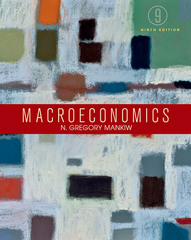Answered step by step
Verified Expert Solution
Question
1 Approved Answer
The Big Mac Index was introduced by The Economist magazine in 1986 as an informal tool to gauge currency exchange rates. It is grounded in
The Big Mac Index was introduced by The Economist magazine in 1986 as an informal tool to gauge currency exchange rates. It is grounded in the Purchasing Power Parity (PPP) theory, which posits that exchange rates should eventually adjust to equalize the prices of identical goods and services in different countries. The index evaluates and contrasts the cost of a Big Mac in various local currencies worldwide, offering a straightforward yet effective method to assess the relative strength of currencies. For instance, a Big Mac is priced at 4.49 in Britain and US$5.69 in the United States, resulting in an implied exchange rate of 0.79. The discrepancy between this figure and the actual exchange rate indicates that the British pound may be overvalued by 0.36%. Despite its simplicity, the Big Mac Index prompts discussions on the impact of market dynamics, local taxes, and consumer purchasing power on commodity prices. This uncomplicated economic metric serves as a vivid illustration of global economic disparities and facilitates public comprehension and engagement with intricate concepts like PPP. Moreover, it has stimulated debates on currency valuation, offering a relatable benchmark due to the widespread presence of the Big Mac. Furthermore, the inflation rate in the
Step by Step Solution
There are 3 Steps involved in it
Step: 1

Get Instant Access to Expert-Tailored Solutions
See step-by-step solutions with expert insights and AI powered tools for academic success
Step: 2

Step: 3

Ace Your Homework with AI
Get the answers you need in no time with our AI-driven, step-by-step assistance
Get Started


